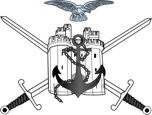About the Group

Lancaster’s Military Heritage
The history of Lancaster is integral with the military history of the area. The arrival of the Romans in 70 AD led to the establishing of a Roman fort which remained on Castle Hill for the next three centuries. Only recently, in October 2005, excavations revealed a memorial to a Roman Trooper, and we include this in our survey (see Chapter 2). Whilst soldiers lived in the fort, a village grew up outside the walls, and this expanded to what we today call Lancaster. The site of the Roman Fort was expanded in the mediaeval period into the Castle that is now open to the public, with access through the impressive John O’ Gaunt gateway which features on the Group logo.
The conflicts of the 20th century have had a major impact on Lancaster. In the South African War of 1899-1902 the locally based King’s Own Royal Lancaster Regiment was one of the first to depart England for South Africa - and as the war continued Volunteer and Militia soldiers from the local area went out to join the regular army.
Both the First and Second World Wars saw the involvement of the local regiment, The King’s Own, but many other units also recruited in the area. In WW2 the local gunners of the 88th Field Regiment Royal Artillery (350 Battery was based at Dallas Road) served in France and Belgium, before being evacuated through Dunkirk, only to be sent to the Far East where many men were captured at the fall of Singapore to the Japanese. The Second World War saw an influx of soldiers, taking over Ripley School in Lancaster and Middleton Towers Holiday Camp and the RAF took over many of the hotels in Morecambe (The Midland being a Hospital).
Local industry turned to support the war effort. Furniture makers Waring and Gillow made everything from tents and canvas bags and equipment to the wooden wings for gliders. Many women were employed in support of the war effort, including clerks who worked for the Canadian Treasury who had offices in Lancaster; the City Museum was closed for the duration of the conflict and handed over for office use. Wars are not only won by soldiers, sailors and airmen alone – but also by those who remain at home supporting them.
Lancaster Military Heritage Group
was founded in 1999 by a small group concerned that these historic links between the area of Lancaster and Morecambe and the Armed Forces were becoming severely reduced and resolved to maintain them. The Founders were conscious from the outset of the debt the armed services owe to the local communities who provide their sons, daughters and support in times of conflict and the need to concentrate on links with the community. The main purpose of the Group is:
"To maintain and develop the historical links between the armed forces, their supporting civilian services, and the local community"
LMHG also undertakes to assist and support in whatever way may be appropriate the implementation of the Armed Forces Community Covenant signed by the Lancaster City Council.
The Group LOGO, shown above, consists of the John O’Gaunt Gate at Lancaster Castle with the crossed swords of the Ministry of Defence Logo representing the army connection. In 2004 the anchor and eagle were added to reflect the tri-service nature of the organisation.
Every few years we see further Defence Reviews implementing further reductions in all three services. Perhaps this makes the Group all the more necessary; certainly, we shall continue to try to maintain the close liaison which has existed between the Lancaster and Morecambe area and the Armed Forces. An essential part of this is to tell the story of the various conflicts that the long-suffering civilian population have had to endure. The War Memorial Project VE 2005 are examples. More recently we have partnered Lancaster University History Department through the WW1 Centenary Commemoration with the “Streets of Mourning” project, mapping out the casualty impact in every street in Lancaster, and this has further led to the Great War Lancaster group of linked websites.
We routinely organise a variety of events open to all; two or three talks each year, visits to sites of interest, a Cadet Competition and a Carol Service. Since 2011, we have organised the Armed Forces Day in Lancaster, and since 2016, also in Morecambe.
We are very keen to attract members of the wider community, including families of regular and reserve servicemen and women and cadet forces. We also welcome employers, organisations, youth groups and anyone interested in the military heritage of our locality.
To find out more about Lancaster Military Heritage Group please visit our website www.lmhg.org.uk
